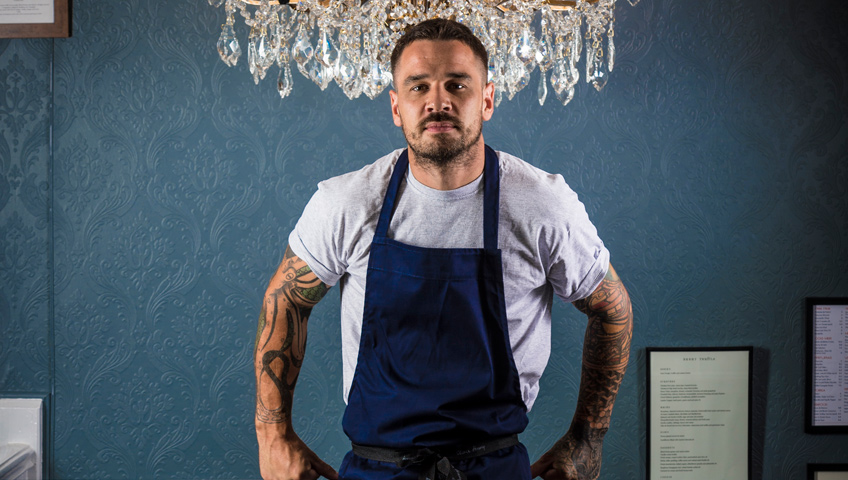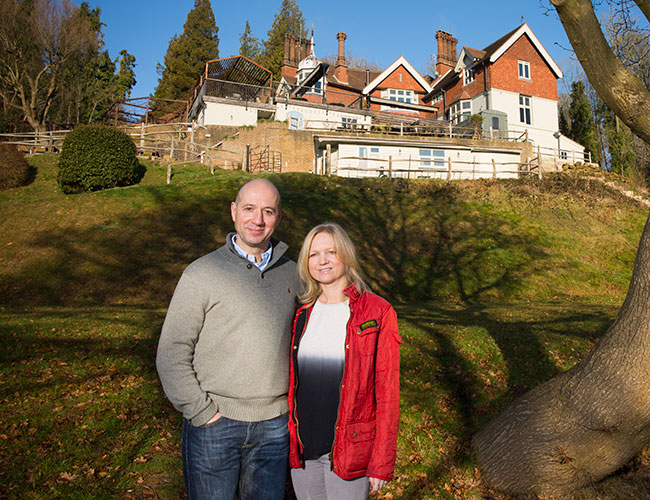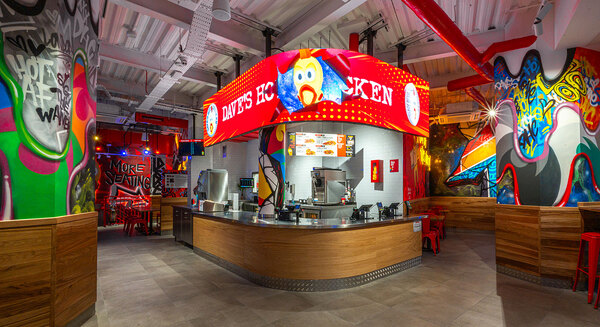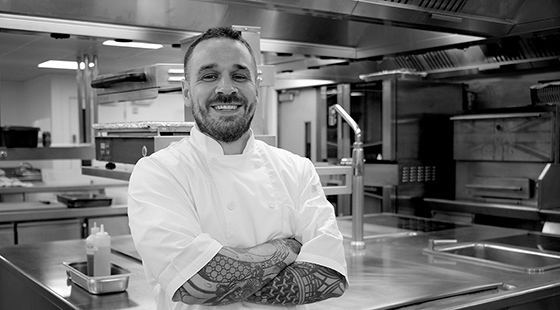Crowdfunding: how to get your idea off the ground
When done right, crowdfunding creates an amount of hype around a business that you simply can't buy, but it's no easy task, says Elly Earls
Once a fringe form of finance used only by very small businesses raising seed capital, crowdfunding has now unquestionably moved into the mainstream, as more and more hospitality operators have realised the benefits of bringing their customers on their increasingly ambitious journeys and rewarding them along the way.
Equity crowdfunding platform Crowdcube has now helped businesses raise £50m in the hospitality sector alone across nearly 25,000 investors, with bar business Brewdog, which raised £10m in just under three weeks to finance its expansion into the US, the best example of what can be achieved exclusively via a crowdfunding platform.
Another operator that has seen success from making its customers part of its story is Chilango, which has raised several million pounds through a number of Crowdcube campaigns. Then there's Nordic fine-dining restaurant Norse, which recently raised £20,000 via Kickstarter to move to a new site. And Gary Usher (pictured) crowdfunded two restaurants and is in the process of launching a £200,000 campaign to crowdfund his fourth site, Wreckfish, expected to open in Liverpool later this year.
"It creates an amount of hype that you can't pay for," Usher says. "With the first restaurant we crowdfunded, Burnt Truffle, when it all came together at the end of the process, it was amazing; there were so many people that wanted it to happen. There were people I hadn't even met before telling people they'd never met before that they needed to get behind the restaurant and put money into it. Nothing does that like crowdfunding."
Crowdcube's chief commercial officer Matt Cooper says that it's become easier to crowdfund businesses over the last couple of years: as the number of businesses turning to crowdfunding has increased, so has the number of investors active on platforms such as Crowdcube. However, he also warns that hitting the target required to release the cash remains a tough task, and involves just as much preparation, energy, effort and teamwork as it ever has.

Equally key before embarking on a crowdfunding campaign is to have an engaged community around the business. âBeing able to reach and engage with these individuals will help provide the early momentum for an equity crowdfunding campaign that will pique the interest of investors who may never have heard of the brand before,â Horbye says.
Then itâs time to take some advice from the experts. âCrowdfunding is a very collaborative process. We work very closely with businesses to execute the best possible campaign they can achieve,â says Cooper. âWhile a founder or entrepreneur will know their brand or business really well, we know crowdfunding really well. An absolute donât is to come and work with us and then listen to none of the advice weâre trying to give you.â
One of the most important parts of any crowdfunding campaign is the video. Get it right and youâre off to a good start, but get it wrong and your campaignâs over before itâs begun. âThatâs your chance, thatâs your interaction, right there and then. Thatâs the one video theyâre going to see and theyâre probably going to make their decision based on that,â says Usher.
That said, according to Cooper, operators do need to appeal to both the heads and hearts of investors. âInvestors love to fall in love with something about the business, whether thatâs the founding team, the product they offer or their journey to get to this point,â he says. âThey also need to believe in the financial story and the management teamâs ability to execute on the plan theyâre presenting.â
Although it isnât required for operators to offer rewards in exchange for investment, many do, often to great effect. âBusinesses should think about using crowdfunding as an opportunity to put steroids into their loyalty programme,â Cooper advises, adding that the best example of that heâs seen is Chilangoâs. âTheir Black Card for Chilango investors, which gave them a free burrito a week, was a legendary marketing ploy. It proved incredibly popular among our investor base and bred loyalty, brand allegiance and repeat visits.â
For Paul Rawlinson, director of Baltzersens, which has just successfully crowdfunded the move of its Nordic fine-dining restaurant Norse to a new site, the key with rewards is to keep them simple. âOur most popular rewards were £50-£100 â" basically lunch or dinner for two,â he says. âWe also offered a âseason ticketâ, which was dinner for two in each season of the year, and we were really surprised by how many people backed us at that level.â
On top of simple rewards, the team also offered exclusive experiences, such as a day in the kitchen with the team, or Norse coming to your office to cook lunch for your team or clients. âWe were conscious, though, that we needed to be careful how much we committed ourselves to outside normal operation of the restaurant â" because there will already be plenty of pressure on us when we move,â Rawlinson says. âIn summary, your rewards should be a balance between things that are relatively simple to supply to your backers [usually your core product] and others that create a sense of exclusivity, excitement and can be more expensive.â
Crucially, once a campaignâs on a crowdfunding platform, the operatorâs job is far from done. âItâs a full-on process and requires a massive amount of energy, drive and enthusiasm, not just from the founder but from their whole team,â Cooper stresses.
Yet the founder should always be leading the charge, says Horbye. âEquity crowdfunding is not a case of sitting back and expecting everyone to come charging in to invest in your business, which they have likely never heard of before. The founders should be engaging with investor questions and telling everyone they meet about the fact they are raising,â he says, adding that when done properly, a crowdfunding campaign is more than worth the effort.
âSuddenly your customer becomes someone who has a vested interest in your business succeeding, and that brings a huge power of loyalty. They become your brand ambassadors, your evangelists. No longer is it the founding teamâs job to be traipsing the pavements shouting about the business by themselves. Through crowd investing you have an army of investors who have your back.â
âWhat weâve found across the 19 years weâve been up and running is that our appetite to fund the hospitality sector has been stable,â he says. âWe have not tightened our lending policies and weâre actively looking for opportunities to fund our existing clients and to acquire new clients. I have not perceived that this is different across the spectrum; I think all banks have a similar approach.â
Each individual opportunity is looked at on its own merits, with the first consideration always the quality and capability of the management team. âThe first thing one wants to be satisfied with is that youâre dealing with people who have the capability to get the business theyâre running to generate sustainable cash flow through good economic times and bad,â Silk notes.
On the back of that, lenders also pay significant attention to the financial performance of the business. âAlthough what has happened historically does not necessarily inform the future, it does provide a reasonably good guide,â Silk says.
For Victoria Symons of law firm Cripps, this does make it harder for start-ups and small hospitality businesses to get access to bank finance, although itâs by no means impossible. âIf you have a great location and product offering, and are personally convincing, well prepared and know your market, this can count for a lot,â she says. âIf you have access to some alternative finance â" your own money, investment from family or others â" and your own house to put up as security, it can all help.â
While terms will vary depending on the opportunity, there are a number of questions borrowers should always ask, says Symons:
How much is the loan going to cost in total? Be aware that borrowers normally pick up the lenderâs costs and there will be various fees to pay, such as an arrangement fee equal to a certain percentage of the loan.
To what extent can the lender interfere with the borrowerâs activities â" for example, in the covenants and events of default? An operator of a hotel or restaurant will want to try to limit any excessive monitoring by the lender, which may interfere with running the business.
Can any of the obligations in the loan agreement be made more borrower-friendly?
Can the triggering of the events of default be delayed with grace periods? Ultimately, it all comes down to the fit between the borrower and the lender, according to Silk. âYouâre seeking to do business with people you can get along with and who you understand,â he says. âIf it doesnât work chemically, then you probably shouldnât try.â
The Business Growth Fund After an initial investment of £4.5m from the Business Growth Fund (BGF) in 2015, the Coaching Inn Group recently secured a further £10m from the BGF to support a planned £50m expansion across the UK.
Based in Boston, Lincolnshire, the business currently operates 12 coaching inns, and will use the capital to increase the size of its portfolio to 25 properties by March 2019. The BGF, which was established to help Britainâs growing businesses, invests between £2m and £10m per business in return for a minority equity stake and a seat on the board for a BGF director. Growth potential is the key criterion.
For the Coaching Inn Groupâs finance director Edward Walsh, the benefits of choosing this route were clear. âThey had access to much greater resources than the traditional equity funder but also only wanted to take a minority stake in the business and to leave the timing and direction of growth to the management team,â he explains.
âThe benefits of BGF compared to bank funding is that their appetite to take on risk is clearly greater, and they can approach capital projects by looking at the overall value proposition rather than the immediate ability to generate cash, which can usually stifle banksâ ability to lend.
âWhile crowdfunding can also provide this, the BGF was able to write much bigger single cheque sizes, which was important to us, and having a single point of contact to articulate your equity story to was much cleaner and allowed greater certainty around making sure our investors understood what it was they were backing and exactly what it was we wanted to achieve.â




















